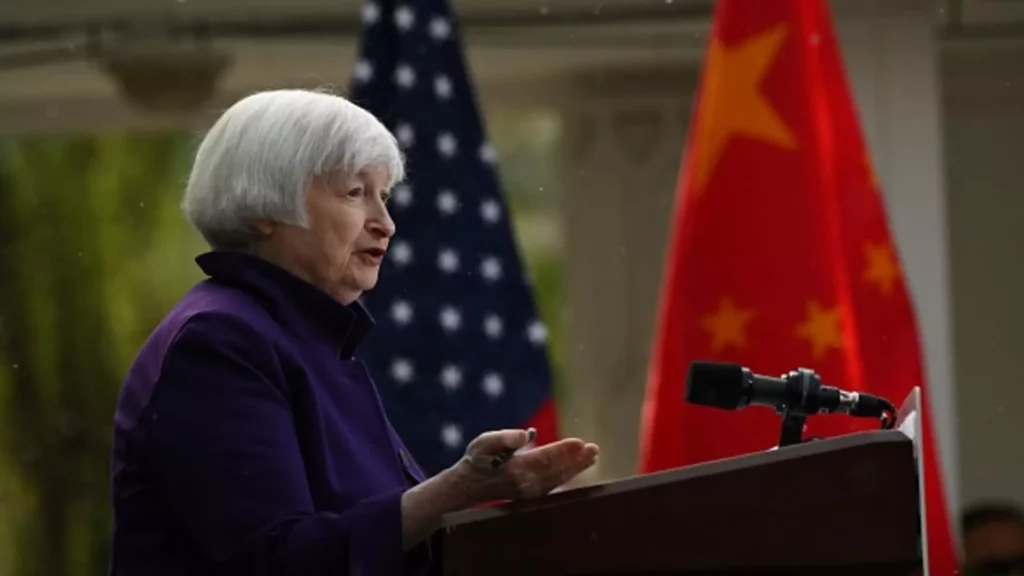![]()
The recent discussions between the U.S. Treasury Secretary Janet Yellen and Chinese officials have highlighted the need for a policy shift in Beijing’s industry and economy. Yellen emphasized the importance of addressing issues related to China’s industrial overcapacity and its impact on global trade during her recent visit to China. The discussions focused on the need for China to change its policy to ensure a more balanced and sustainable economic growth.
One of the major concerns raised during the discussions was China’s industrial overcapacity, which has become a point of international concern. The excess production of goods in China has led to undercutting global competitors on price, raising questions about the fairness of competition in the global market. While China’s commerce minister dismissed accusations of overcapacity as “groundless” and attributed the growth in China’s EV industry to innovation rather than subsidies, the issue remains a topic of contention among international stakeholders.
Yellen pointed out that addressing industrial overcapacity and boosting domestic demand in China would require significant policy changes. She suggested that China could support retirement or children’s education to increase domestic consumption and reduce reliance on savings. However, Yellen acknowledged that these changes would not happen overnight and would require sustained efforts over a long period. The slow rebound of consumer demand in China following the pandemic has added to the challenges faced by policymakers in addressing these issues.
Both the U.S. and China have increasingly cited national security concerns as a reason for implementing new measures affecting economic policies. Yellen highlighted the importance of exchanging information on the use of economic tools in national security and maintaining transparency in communication between the two countries. The recent agreements between the U.S. and China to expand cooperation against illicit finance and financial crime demonstrate a willingness to address shared challenges through mutual understanding and collaboration.
Yellen’s meetings with top Chinese officials, including Premier Li Qiang and Vice Premier He Lifeng, focused on building a more stable bilateral relationship between the U.S. and China. Both sides recognized the importance of open and direct communication to address their differences and work towards common goals. While China expressed concerns about U.S. trade restrictions, the discussions were described as “constructive” with a focus on promoting balanced economic growth and financial stability.
The discussions between the U.S. and China underscore the need for a policy shift in China’s industry and economy to address challenges related to industrial overcapacity, domestic demand, and national security. By promoting transparent communication, cooperation, and understanding, both countries can work towards building a more stable and mutually beneficial relationship that contributes to global economic growth and stability.

Leave a Reply